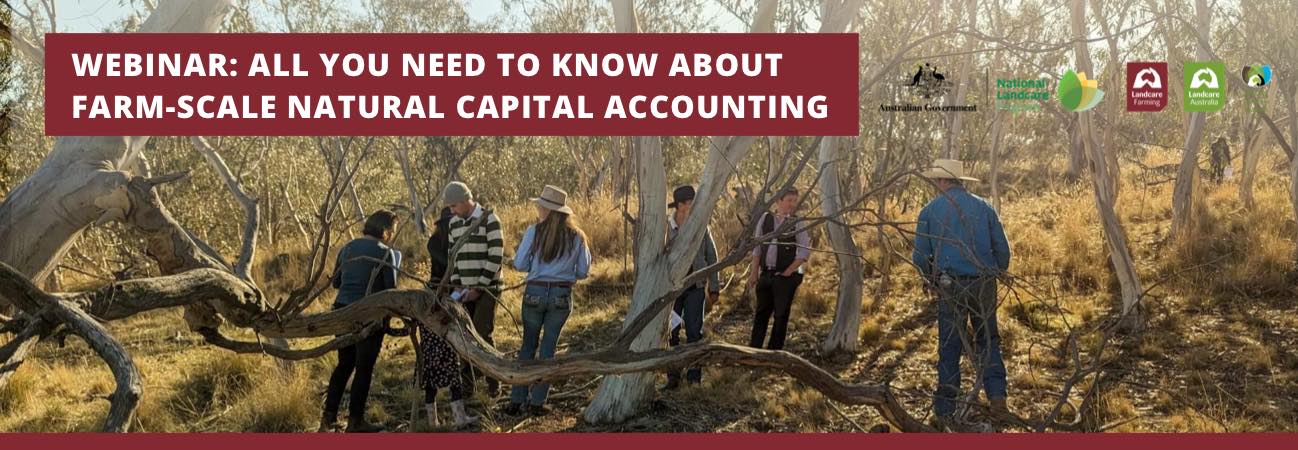
Landcare Farming Webinar
All you need to know about Farm-scale Natural Capital Accounting
Sign up to the Landcare Farming List to attend this webinar.
Natural capital (vegetation, soil, water, native ecosystems) is increasingly recognised as a critical input to agricultural production. Consequently, many farmers want to maintain or improve their natural capital through improved management practices and retention or restoration of natural ecosystems. Being able to account for natural capital at the farm scale will become increasingly important to link environmental outcomes to productivity and financial outcomes, and to demonstrate environmental performance in line with sustainability and reporting frameworks such as the Australian Agricultural Sustainability Framework and international agreements such as the Taskforce for Nature-related Financial Disclosure. Access to some international markets and premium brands already requires sustainability reporting and this is likely to increase in the near future. However, standardised tools to measure and report on the status and trends of natural capital at a farm-scale are currently lacking.
In the Farm-Scale Natural Capital Accounting Project, Jim Radford and his team address this critical gap by developing a framework and methodology to measure and account for natural capital on farms. They have generated farm-scale natural capital accounts for 50 farms in south-east Australia. The accounts are based on state-and-transition models of the ecosystems that occur on a farm, including production areas, natural and semi-natural vegetation, and replanted or restored vegetation. An ecological asset register records the area of the different ecosystem states (i.e. natural capital assets) and captures information on the overall condition and stock of a farm’s natural capital.
The accounts also include estimates of the ecosystem services that flow from the respective natural capital assets, including provision of forage for livestock, carbon sequestration, soil condition, micro-climate regulation, provision of habitat for biodiversity, pollination and pest-suppression services. Over time, improvements (or deterioration) in natural capital arising from land-use change (e.g., replanting/revegetation) or management change (e.g. grazing practices) will be captured in the accounts.
Farm-scale natural capital accounts pave the way for rewarding farmers for nature-positive actions and sharing the cost-burden (above the production benefits) of maintaining or improving natural ecosystems on their farms.
In this webinar, our expert speakers will introduce the accounts and step through their development and the data contained within them. They will demonstrate the potential of the accounts to:
- Inform farm management – the accounts contain data that can inform strategic decisions about land-use and on-ground management and track environmental performance.
- Demonstrate environmental performance – the accounts are a valuable tool for farmers to demonstrate their environmental credentials (e.g. GHG emissions, resource use, land cover change, habitat condition change) to a range of stakeholders – banks and investors, insurers, buyers, markets.
- Document transparency in the supply chain – by allowing environmental performance to be tracked from source to product.
| Date: | Thursday September 7 |
| Time: | 11am |
| Facilitator: | Angela Hammond, Landcare Farming Project Manager |
| Speaker(s): | Dr Jim Radford (La Trobe University), Danny O’Brien (Integrated Futures), Angela Hawdon (Bush Heritage Australia) |
Supported by the Australian Government’s National Landcare Program, the Landcare Farming Webinar Series is managed in partnership by Landcare Australia and the National Landcare Network.



